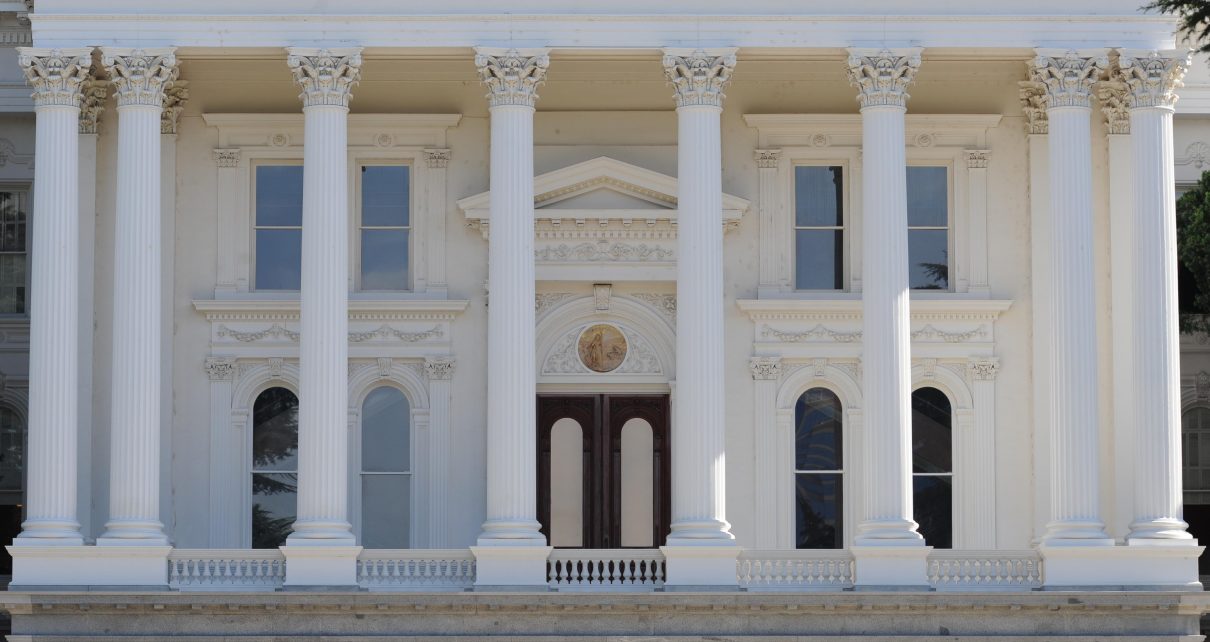
California State Capitol. (Photo: Kevin Sanders for California Globe)
Does a Bill Need Statutory Construction Guidance?
We found at least 225 code sections that contain this phrase, out of about 156,000 statutes in California’s 29 Codes
By Chris Micheli, April 22, 2024 3:00 pm
Have you seen the following sentence in a California bill or in a statute: “This act shall be liberally construed to effectuate its purposes.” Why is this phrase needed? Shouldn’t that be obvious guidance to a court when interpreting a statute?
In brief research, I found at least 225 code sections that contain this phrase, out of about 156,000 statutes in California’s 29 Codes. So, although it is not commonly used in California law, is it actually needed?
According to state courts, “The fundamental rule of statutory construction is that a court should ascertain the intent of the Legislature so as to effectuate the purpose of the law.” Upland Police Officers Assn. v. City of Upland (2003) 111 Cal.App.4th 1294, 1303. “We must construe the statute with a view to promoting rather than defeating its general purpose and the policy behind it. We are mindful that statutes must be interpreted ’so as to give a reasonable and common-sense construction…, a construction that is practical rather than technical, and will lead to wise policy rather than mischief or absurdity’.” (Upland, 111 Cal.App.4th at p. 1303)
If these judicial statements explain the approach taken by our courts, does the judicial branch need to be told to “liberally construe” a statute in order to “effectuate its purposes”? Both federal and state statutes, and even federal regulations, contain these types of statements.
For example, the federal RICO statute contains this provision: “shall be liberally construed to effectuate its remedial purpose,” Some federal regulations contain the following guidance: “These rules and regulations shall be liberally construed to effectuate the purpose and provisions of this Act “
The following are some examples taken from California statutes: Code of Civil Procedure Section 452 provides: “In the construction of a pleading, for the purpose of determining its effect, its allegations must be liberally construed, with a view to substantial justice.” Streets & Highways Code Section 31518 regarding the Vehicle Parking District Law of 1943 provides: “This part shall be liberally construed.”
In addition, Government Code Section 38001 regarding the Park and Playground Act of 1909 states: “This chapter shall be liberally construed to promote its objects.” Financial Code Section 31001 regarding business and industrial development corporations specifies: “This division shall be liberally construed to accomplish its purposes.”
Do the state’s courts have to accept these statements of legislative intent contained in California statutes? No, but they are more often than not cited by the courts to support their interpretation of what the Legislature intended when the courts interpret statutes.
- Eminent Domain Law - February 13, 2026
- International Disputes Arbitration Agreements Generally - February 13, 2026
- Divided Interests in Eminent Domain - February 12, 2026


